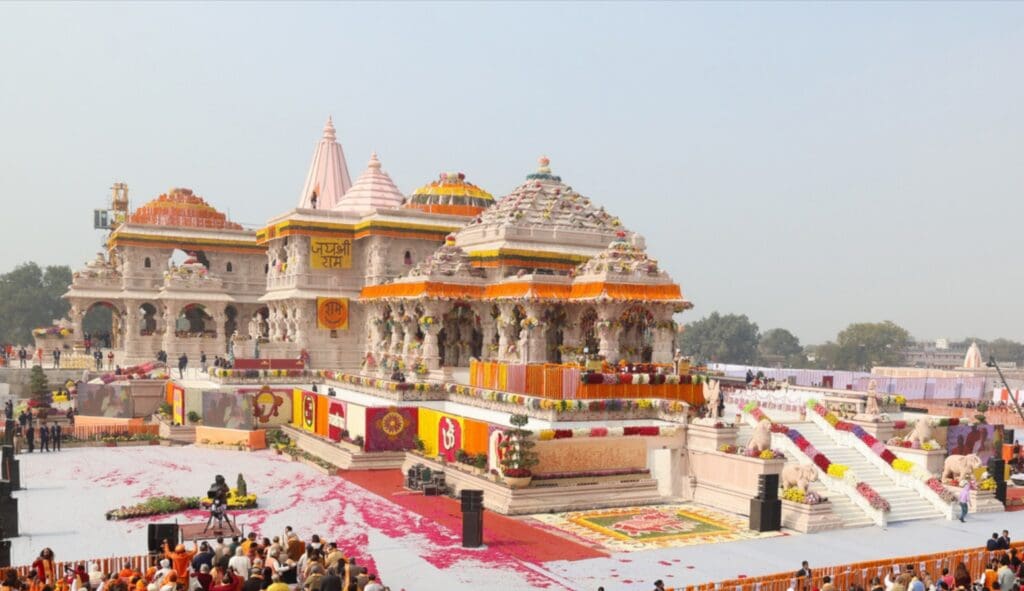
The Delhi High Court has overturned an order issued by Central Information Commission (CIC) order directing the Central Board of Direct Taxes (CBDT) to provide information regarding tax exemptions availed by the Shri Ram Janmabhoomi Teerth Kshetra Trust.
The order was issued after Kailash Chandra Moondra, in a plea, sought a copy of the application filed by the trust to get tax exemptions and deductions for its donations, under the Right to Information Act , LiveLaw reported.
The Shri Ram Janmabhoomi Teerth Kshetra Trust was established by the union government to undertake the responsibilities related to the construction of Ram Temple (Ram Mandir) in Ayodhya, which was built at the site of Babri Masjid after the mosque was demolished.
The litigant had approached the Central Public Information Officer of the CBDT twice but was denied the information, as reported by PTI.
It was then the appellant moved to the Central Information Commission under RTI.
The CIC asked the CBDT to provide a copy of the complete application filed by the trust for getting exemptions/ deductions under Section 80G(2)(b) of the Income Tax Act for its donations, responding to the appeal, on November 30, 2022.
On February 28, Justice Subramonium Prasad heard a plea filed by the union government against the CIC and decided to set aside the CIC order.
The government counsel argued that the information involving an assessee cannot be disclosed under the RTI Act in view of Section 138(1)(b) of the Income Tax Act, 1961, Bar and Bench reported.
While overturning the CIC directions, Justice Prasad referred to a previous judgement issued in January against another Central Information Commission order directing the Income Tax Department to disclose the tax exemption details granted to the Prime Minister’s Citizen Assistance and Relief in Emergency Situations (PM CARES) donation funds.
The PM CARES Fund established in March 2020 as a “dedicated national fund” to deal with “any kind of emergency or distress situation” in the aftermath of the coronavirus pandemic, was controversial for its suspicious proceedings.
After an appeal was filed against this judgement, the case was scheduled to be heard next on July 10.
“In view of the above, the writ petition is allowed. The Impugned Order dated 30.11.2022 passed by the Ld. CIC is set aside. Pending applications, if any, also disposed of However, it is always open for the Respondent to approach the appropriate authority under the Income Tax Act to seek information as sought for in the RTI application,” the Court ordered on February 28, in the case pertaining to the Ram Mandir trust.
The Ram temple in Uttar Pradesh’s Ayodhya was inaugurated on January 22 in a ceremony led by Prime Minister Narendra Modi.
The temple stands where the Babri Masjid, which was torn down by a mob of Hindu nationalists on December 6, 1992, earlier stood.
The construction began after the Supreme Court of India on 09 November 2019 ordered the entire land to be allocated for the temple, granting amnesty to the perpetrators of the demolition



